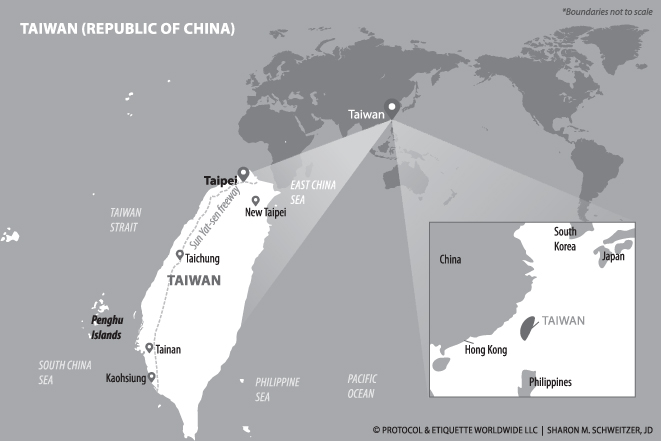Chapter 14Taiwan

“I am Taiwanese as well as Chinese.”
—Ma Ying-jeou
Introduction
One adjective we heard many times in connection with Taiwanese business was hypercompetitive. Some of the people we interviewed for this book said this cultural tendency begins in school. Others believed it is historical, stemming from the time when earning jinshi, the modern-day equivalent of the Ph.D., by passing the system of imperial examinations established by the Chinese emperors, led to prestigious positions and land ownership. The drive to study hard and earn a degree, preferably in an engineering discipline, is commonly found across many Asian countries. However, this drive to compete, at least as it was explained to us, seems to have been inculcated in Taiwan through a centuries-old system in which many competed but few received the highest rewards.
Such drive and ambition has served Taiwan well. In the early 1980s, the combination of well-educated talent, progressive government policies, and investment in areas such as Hsinchu Science Park, helped to establish Taiwan's economic focus as a global high-tech powerhouse. As one BBC article pointed out, “You may not have heard of the companies Quanta Computer, Compal Electronics, Pegatron, Wistron, and Inventec, but together they make more than 90 percent of the laptops sold worldwide, including those sold by brands such as Apple and Dell.” ...
Get Access to Asia: Your Multicultural Guide to Building Trust, Inspiring Respect, and Creating Long-Lasting Business Relationships now with the O’Reilly learning platform.
O’Reilly members experience books, live events, courses curated by job role, and more from O’Reilly and nearly 200 top publishers.

